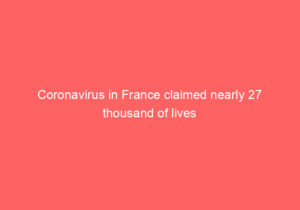Despite the block, users can visit Russian sites via VPN, but the influence of social networks from Russia significantly decreased
In Ukraine extended the ban on Russian social networks. So, the other day for it at the extraordinary meeting voted in the Verkhovna Rada. And then, on may 14, President Vladimir Zelensky has enacted the decision of the Council of national security and defense Council (NSDC), which provides for the extension of the ban on Russian websites and social networks. The website “Today” to find out how effective the ban and whether the Ukrainians are now banned sites.
Popular Russian sites in Ukraine
In may 2017 Ukraine has banned a number of Russian resources. Under the sanctions were popular at the time, “Vkontakte”, “Classmates”, mail.ru and dozens of other sites and programs. In 2019 sanctions for “Yandex” was extended to 2022, but the ban on the social network expired on may 15 this year.
As for the attendance of Russian websites and services in Ukraine, there are different calculations. Before the sanctions were imposed, “Vkontakte”, “Classmates”, mail.ru and “Yandex” among the ten most popular sites among the Ukrainian audience. According to research by Factum Group Ukraine for the Internet Association of Ukraine (IAU) previously “Vkontakte” was in second place for attendance. And “Yandex”, “Classmates” and mail.ru held between the fourth and sixth place respectively.
Already December 2019 it is seen that “Vkontakte” descended to 9th place, but the “Classmates” and “Yandex” continue to hold their positions. Constantine Jakun, Board member of the IAU, says that the attendance of the Russian sites have fallen, but they are still popular in Ukraine.
“If we compare the attendance of the Russian sites, which are now in the sanctions list in April 2017, before the ban, and in December 2019, we will see that the Russian site “Vkontakte”, “Classmates” and mail.ru always was in the TOP 5 in attendance. At present, almost all of them fell out of the TOP 5. The audience for these sites has declined significantly, but they are still popular in the country, whether we like it or not. Those who are integrated into the Russian information space, and those who were not able to give it up, found ways to get around. Our users become more vulnerable to other things, they started to use VPN to visit sites. While most VPNs, especially free, is the development of Russian companies. Ie, the traffic our users are partly left in the Russian Federation”, — says Jacon.
But, according to other studies, all of the above sites and does not included even in the TOP 25 most visited resources in Ukraine. Sergey Stukanov, head of the analytical Department of the Center of the content analysis, says that as of March 2020, according to Kantar, a Russian social network that ranks in the TOP 25 on the monthly coverage. The social network №1 in Ukraine in 2017 became Facebook. In March of this year, the coverage reached 67%; rapidly increasing audience also Instagram (11-step 32% coverage) and Telegram (28th place).
“These social networks completely cover the needs of the Ukrainian audience. Almost certainly it can be argued that, even if you restore the access to Russian social networks, return to their former popularity in Ukraine is impossible. There is no doubt that those Ukrainians who are specifically looking for a specific Russian or Pro-Russian content in these networks, and now use them with VPN services. Their share will probably not exceed 20% coverage. The rest of the Ukrainians shifted to other sites and Russian social networks, most likely, will not be back,” says Stukanov.
Constantine Gacon explains that the difference in estimates may be due to different sample.
“We can look at the selection each month, and notice how fell visit resources from 2017. In other studies, may simply be a different sample. We include in the study those who at least once a month visited the site, it is considered a user”, — says the expert.
The FSB monitors the Ukrainians through Russian social networks — experts
How to lock effective
To evaluate the effectiveness of blocking Russian sites is quite difficult, after all, to ban something on the Internet – obviously a utopian idea, and those who want to circumvent the ban, will always find how to do it.
In 2017, explained that the sites were blocked due to a number of reasons. So, in the context of a hybrid war carried out by Russia, it was necessary to isolate themselves from its influence and propaganda, and to stop using the products that fill the budget of the aggressor countries. In addition, information from social networks could take advantage of the FSB, therefore, it was necessary to protect the personal data of Ukrainian users.
But, says Constantine Jakun, the influence of Russia and its information attack simply moved to other platforms, for example, on the same Facebook or on TV or YouTube.
“In 2017, the IAU has opposed the use of this method as blocking sites. Because technically it’s not 100%. Even in China, which spent billions of dollars to build the internal system of the Internet, all those who need to circumvent these prohibitions. We were against it because then sites started to ban, simply by decree of the President, without court decisions. That was very wrong. In addition to the first of the sanctions list there were others, and then blocked completely different resources, up to 1C Bitrix, etc. It was purely commercial products that had little impact on the element of propaganda. The resources that were blocked the first time, they are objectively harmed. We were worried that after such lock in the country is entered censorship. Well, that didn’t come to that,” says Jacon.
Sergey Stukanov also said the ban has proven its effectiveness, because until 2017, it was hard to imagine an active life in Ukraine without the use of “Vkontakte”.
“Today, this social network has become marginal in Ukraine; it has lost importance in the majority of the territory of Ukraine. To reduce the list of banned sites clearly do not have to expand, you may want. I think the government should annually review the list and, if necessary, to expand it, including new sites that appear,” says Stukanov.
He noted that to continue the ban is necessary because Russian Federation continues the occupation of Crimea and parts of Donetsk and Luhansk regions in Donbas fighting. Information warfare is a key component of Russia’s war against Ukraine.
“Russia extends their narratives, impose their vision and their interpretation of events in Ukraine. Here is just some of them: not the Revolution of Dignity, and “coup d’etat”; no annexation of Crimea, and “the will of the inhabitants of the Peninsula in a referendum”; not the Russian occupation of the Donbas, and “civil war”, etc. In General, researchers identify fifteen to twenty messages, which are actively promoted by Russia in Ukraine. In this regard, should continue to ban any number of channels, which Russia distributes these messages and narratives. This applies not only to websites and social networks but also television, cinema, and representatives of the Russian platform, which supported aggression,” explains Stukanov.
He added that to renew the ban on Russian social networks have at least until the day when the Russian Federation cease its occupation of the Eastern part of the Donbass and the Crimea Peninsula. Ideally, even after that date, the ban should operate for another three years. If during these three years, you can be sure that the message has ceased to be destructive and hostile to our country.
“If to speak only to the civil aspect, the sanctions need to renew is the minimum that we can do. But in addition to the renewal of sanctions, we need to create our own content, we need to encourage the creators of contact, web developers. To create the conditions to something similar we had and they could replace all these social networks into something national,” concluded Jakun.
About how Ukraine has intensified online scammers video “Today”:









